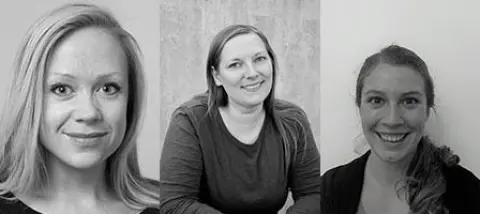COOKIES
By Mary Nelson, KAIROS OUTSDE
National Trainer
In all the years of serving on Kairos Inside weekends at Broward Correctional it did not occur to
me how blessed we were to have a waiting list of inmates wanting to attend our weekends. All
we had to do was post the date and the Chaplain and staff did all the work. Why, we even had
a reserve list of inmates in the event someone went to lock or home! We as a team did not
have to worry from one weekend to the next where our ‘participants’ were coming from. That
worry was handled beautifully and willingly by others. (See page II-5, 6 in the Program Manual
2005 edition.)
Kairos Outside does not have the institution recommending ‘guests’ for outside weekends. We
rely heavily on the Kairos Inside volunteers to promote our weekends. This is true even when
an area has been in existence for years. You see, one of the goals of Kairos Outside is to
encourage those women who have relatives and close friends in prison and hopefully have
participated in Kairos Inside.
Since we have found it necessary to postpone weekends due to a lack of guests we are
begging you to promote Kairos Outside in your respective institutions. Invite a Kairos Outside
volunteer (preferably a former guest) to speak at your closing. Encourage the Chaplains to
become familiar with Kairos Outside. If permitted by the institution place a KO brochure in the
inmates’ folder. Talk with the inmates on a one to one basis at reunions.
Cookies are not going to be enough! We need ALL OF YOU!
We do want to thank all the Kairos Inside communities, who intentionally push Kairos Outside
and we hope that the residents that you minister to, are blessed because of the support that
Kairos Outside gives to their family members and friends. We are all in it together and with your
help and the grace of God, the whole family will experience the love of Christ which transforms
all of our lives.
When the above article was published in the summer issue of God’s Special Time I received
positive feedback; both from those in the KO community but, more importantly, from those of the
KI community. Needless to say, I was stunned that someone had advised a state that it would
DETRACT from a weekend if a KO volunteer were to be given five minutes at a closing to ‘pitch’
KO. The dictionary defines DETRACT as: to draw or take away; to speak ill of or belittle. And
yet the MISSION OF KAIROS is to bring Christ’s love and forgiveness to…all incarcerated
individuals, their families, and those who work with them, and to ASSIST THE INCARCERATED
IN THE TRANSITION TO BECOMING A PRODUCTIVE CITIZEN. Having been on more than a
dozen KI teams I heard repeatedly from inmates their desire to not only make amends but
wouldn’t it be wonderful if there was something for their loved ones to attend. Fortunately there
are communities who have taken that a step further. They are doing Kairos Outside/Inside!
There is a saying: ‘Strike while the iron is hot’ which fits perfectly the intent of this idea. When a
Kairos Outside wife, daughter, sister, etc. speak from the heart, I submit this DOES NOT detract
from a weekend. Rather, it is a Grace-Filled opportunity to truly bring reconciliation where it is
needed most.
The Ultimate Gift
By Marilyn Elkins, International Kairos Outside Subcommittee Chair
Can you imagine receiving an “Ultimate Gift”? One that could change your life. Better yet can
you imagine giving that gift to someone who has stood by you thru the worst time in your life?
Kairos Outside is the “Ultimate Gift” that a resident can give his/her mom, sister, wife,
grandmother or friend. There is very little a resident can do to for their family to show how much
they are appreciated and loved. Every Kairos Inside teams I’ve been on, one of the first
questions I’m asked by the residents, is there a weekend like this for my relatives/friends.
We have the opportunity to help the residents give this “Ultimate Gift”. What a wonderful way to
end a weekend, to know that a similar weekend is available for their family/friends. Think of the
impact on their family; when they experience the change in their son/daughter/husband/friend,
and learn that a similar weekend is available for them.
Unless you have or have had someone inside you can only imagine what it must be like. Many
live two lives, one the public sees and knows, the other goes to the prison on weekends to visit
their loved one, and no one knows they have someone in prison. The feelings of failure, guilt,
isolation, anger, despair, shame and depression just to name a few. Kairos Outside provides a
safe place for our guests to talk out and deal with these emotions with others walking the same
walk. Many are amazed to know there are so many others going thru the same thing. Also
amazing to them is the unconditional love the team gives, and that God has not forgotten or
forsaken them.
What better way to invite guests, than to give a brief talk at the closing telling about Kairos
Outside and providing a means for them to pass the information on to their family. I am talking
from experience, you see, October 1994 my son attended a Kairos and signed me up for the
next Kairos Outside in February 1995. He was so excited to tell me that he had signed me up.
Giving me the Ultimate Gift that changed my life.
I would like to request that the Board of Directors give permission to all the Inside Kairos
weekends to allow a 5 minute presentation at the closing to explain how the residents can give
“The Ultimate Gift” to their relatives/friends.














